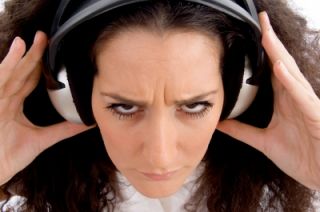Anger
Punk Music Isn't "Bad"
Extreme music can help regulate emotions (if you like it).
Posted July 30, 2015

Early in my professional career as a music therapist, a colleague asked me what I thought about her teenage son’s music choices. He had started listening loud, punk-type music and my colleague was wondering whether or not she should be worried. I assured her that, although this was not a particular area of expertise for me, if anything acknowledging and reflecting on his music choices could provide insight into how he was doing emotionally. If anything, it could be a conversation starter.
Turns out my educated gut instinct may not have been that far off.
Australian researchers Leah Sharman and Genevieve Dingle recently published an article in Frontiers in Human Neuroscience exploring the connection between “extreme music” (e.g., heavy metal, hardcore, punk, and similar genres) and anger. More specifically, they examined whether listening to extreme music causes anger—a concern shared by professionals, teachers, and parents such as my colleague—or whether listening to extreme music helps process and regulate anger. Previous studies were inconclusive, showing on one hand that listening to heavy metal music could increase physiologic arousal (a component associated with an emotion response such as anger) while others concluded that listening to extreme music was a reflection of emotional vulnerability and a mechanism for emotion regulation.
Sharman and Dingle recruited individuals who indicated being fans of extreme music. They conducted a 16-min anger interview with participants, after which half the participants were invited to listen to music of their choice for 10 minutes—they all selected extreme music—and the other half simply sat quietly for 10 minutes (the control condition). Participant heart rates were recorded throughout the process (to measure arousal), and they completed a questionnaire in which they rated feelings of hostility and irritability before the anger interview, after the anger interview, then again 10 minutes later following the music listening or silence condition (a subjective measure of anger).
Data analysis results support the hypothesis that listening to extreme music helps process and regulate anger. Participant heart rates increased during the anger interview, then either stayed the same (music condition) or decreased (silence condition). Participants reported feeling more hostile and stressed after the anger interview, but more relaxed following the music or silence. Furthermore, those who listened to music reported feeling more “active” and “inspired,” two positive emotions on the questionnaire.
So what does this mean?
- Well, there were no differences in relaxation ratings between the music listening and silence control groups, meaning that it could have been simply time that helped participants calm down.
- However, those who listened to music reported feeling more positive emotions, a finding supported by their sustained level of arousal (increased heart rate isn’t just for anger, it happens with other emotions as well).
- And the key to all this is that the participants selected their own music, and all of them liked (and chose to listen to) their preferred heavy metal-punk-emo-type of style.
In other words, listening to their preferred extreme music helped participants not just regulate and calm down, but shift to a more positive emotional state.
So perhaps, then, we need not worry quite as much about our teens’ emotional health when they blast that heavy, powerful, loud, aggressive-sounding noise through their ear buds (though we should still help take care of their eardrums). Instead, observe the child and note when he or she chooses to turn on that music (Is he angry? Does she seem upset? Are they bored?), and what happens as a result of listening to that music (Still moody? Seems calmer? Happier perhaps?). Consider letting those be your indicators of how your child is doing, not the music itself.
References
Sharman, L. & Dingle, G. A. (2015). Extreme metal music and anger processing. Frontiers in Human Neuroscience, 9. Retrieved from http://dx.doi.org/10.3389/fnhum.2015.00272
Follow me on Twitter @KimberlySMoore for daily updates on the latest research and articles related to music, music therapy, and music and the brain. I invite you also to check out my website, www.MusicTherapyMaven.com, for additional information, resources, and strategies.


